Nicolas Maduro announces next visit to Iran
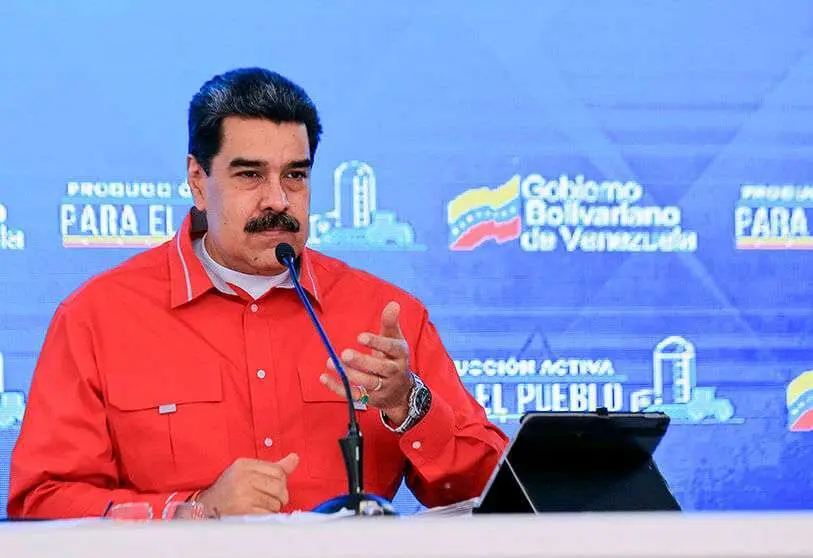
After five cargo ships with gasoline from the Islamic Republic of Iran arrived in Venezuela, which supplied the Latin American country with energy, President Nicolas Maduro has indicated that he will soon travel to Tehran to sign a major bilateral agreement, thus challenging the U.S. embargo on both states; a blockade that seriously affects the finances of the two nations.
"Soon I will travel to Iran, to embrace them," Nicolas Maduro said effusively. "We will go to the High-Level Joint Commission to sign agreements on energy cooperation, financial cooperation and military cooperation. The United States wants to asphyxiate us; just as it asphyxiated this young African-American, George Floyd, it wants to asphyxiate us here, in the jugular," said the Bolivarian leader in a state television address, recalling that he would travel to Tehran as soon as the conditions for the COVID-19 disease pandemic are favourable.
The supply is part of a cooperation agreement that Venezuela reached with Iran to help alleviate fuel shortages. Maduro expressed his gratitude to Tehran for the support it provides to the Venezuelan people. "Thanks to Iran, applauses to the Islamic Republic of Iran from all homes, to the supreme leader Ayatollah Khamenei, to President Hassan Rohani; I will soon go to Iran to embrace them, as soon as the sanitary conditions of Iran and Venezuela allow it," the Bolivarian leader said.
Nicolás Maduro remarked “I am obliged to go to personally thank the people. Thanks to the Islamic Republic of Iran, to our Iranian brothers who sent five ships and supplied us; we started this plan that is going to be sustained in time, you are going to see it," he said. The Venezuelan government pointed out that the last ships sent with fuel were paid with dollars so they had to start charging it at the international price. The five Iranian ships 'Fortune', 'Forest', 'Petunia', 'Faxon' and 'Clavel' transported 1.5 million barrels of fuel with an estimated value of 45.5 million dollars.
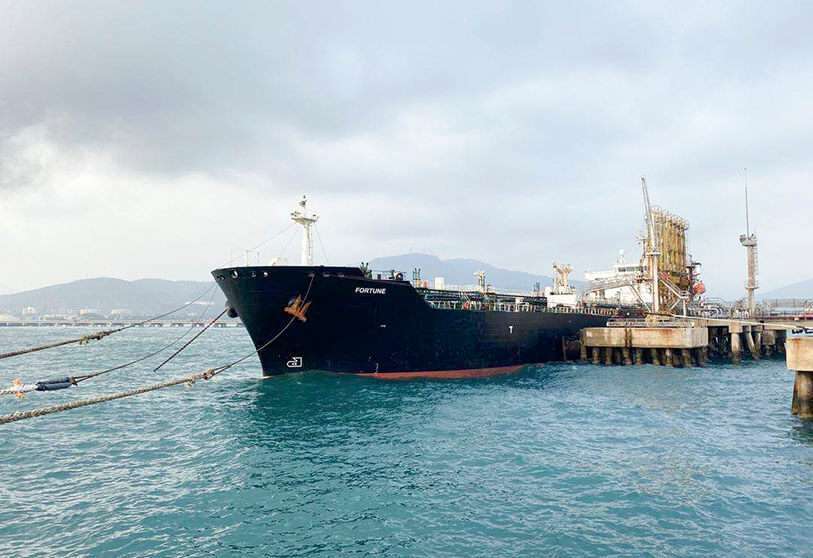
The usual endless queues to refuel and a historical increase in the price of gasoline have been reproducing in the Caribbean country, which is paradoxically rich in oil resources. The price has risen to 0.50 cents per litre, with the possibility of refuelling a maximum of 30 litres. The new thing now is that it can be paid for in dollars. The Executive offers a subsidy for individuals, but on condition that they subscribe to the Carnet de la Patria, an identification system that allows political control of the population. New devices register the payment, the identity card and the litres refuelled.
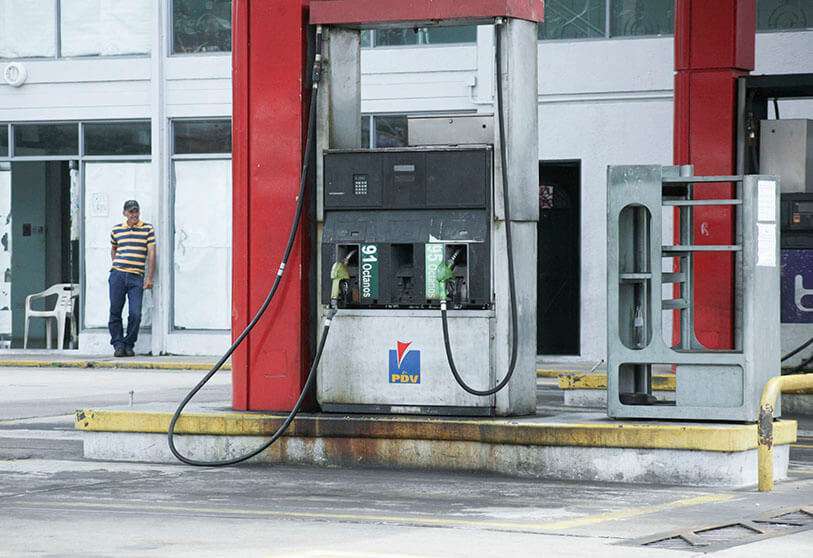
On June 1, for the first time in the last 20 years, service stations began to accept payments in dollars at a rate of 0.50 dollars per liter without subsidies and 0.025 cents for those who are affiliated to the Carnet de la Patria and require a subsidy. This is a real milestone in Venezuela, where the price of a liter of gasoline was practically free for all citizens.
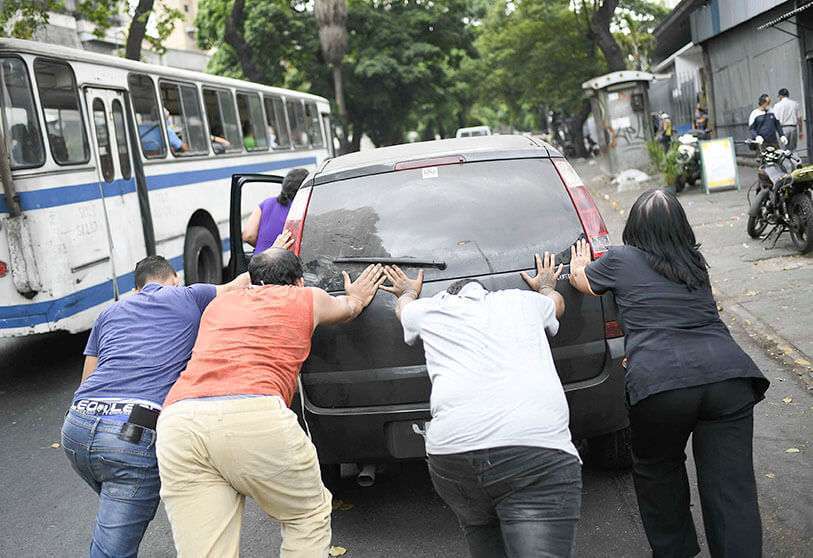
This alliance comes after Donald Trump's US government decided to impose an economic blockade on Venezuela to force Nicolás Maduro and the Chavistas out of power. A blockade that focuses mainly on the crude oil business in Venezuela, the country with the largest reserves of heavy oil in the world, although it cannot refine it and transform it into gasoline at present because it needs additives bought in the past from US companies, for example.
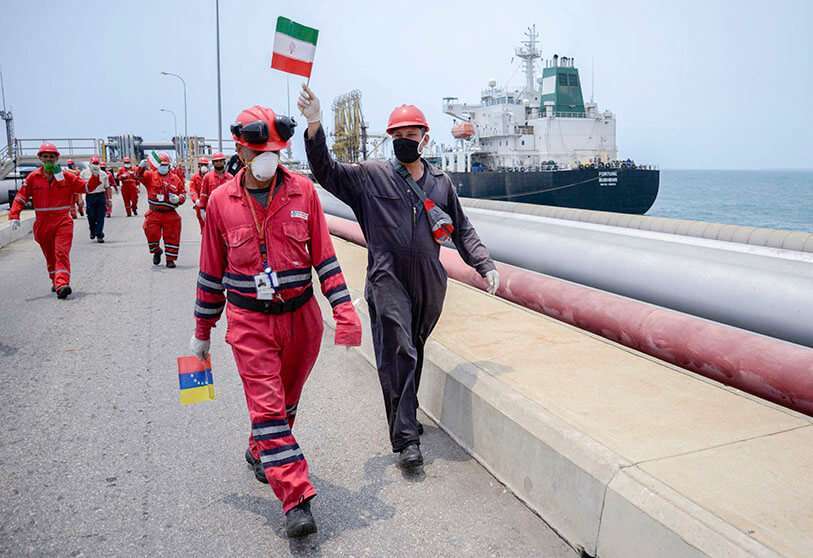
Iranian Foreign Ministry spokesman Abbas Mousavi said his country is willing to send more ships with gasoline to Venezuela if the nation led by Nicolas Maduro requests it. "In case Venezuela sends us a new request, it will be attended to," said the diplomat, according to the Iranian news agency Tasnim.
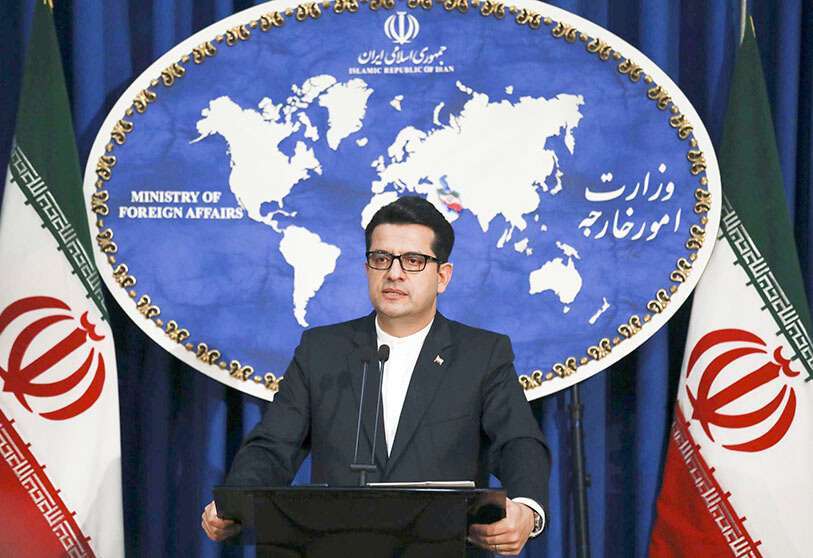
These statements by the Persian government were made despite threats from the United States to apply severe sanctions against companies that collaborate with the Middle Eastern country in the shipment of fuel to Venezuela.
At the time, the President of Iran, Hassan Rohani, stated that a possible US intervention against Iranian oil tankers sent to Venezuela would be subject to retaliation. "Any 'pirate' action by the US Navy against Iranian fuel shipments to Venezuela would provoke a harsh response," said the Iranian leader, according to the Iranian news agency Nour. The leader added that Tehran does not want conflicts, but that it will not remain inactive in the face of threats to its national sovereignty and territorial integrity.
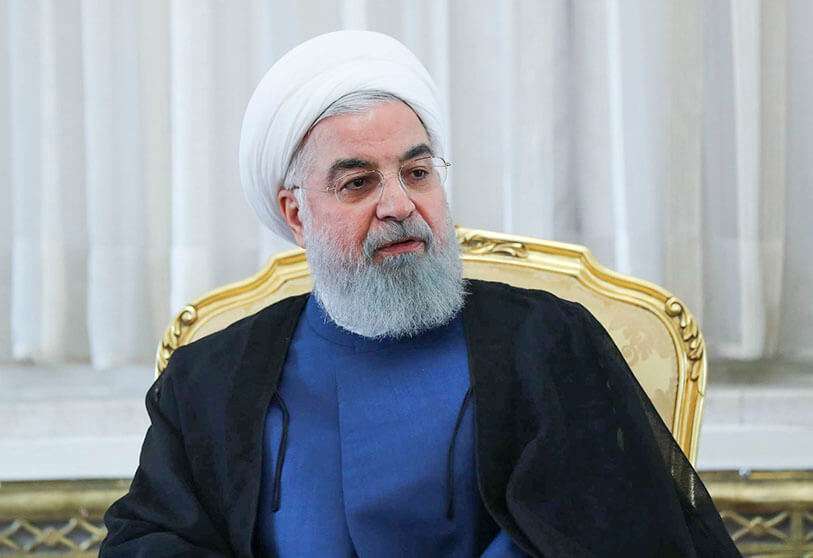
The ayatollahs' regime is suffering from an embargo decreed by the United States following the abandonment by Donald Trump's administration in 2018 of the nuclear pact signed with Iran (along with other powers such as Russia, the United Kingdom, France, Germany, China and the European Union) in 2015 (JCPOA) which limited the Persian atomic program, especially in the area of weapons; the Trump administration argued to get out of the agreement that the Iranian authorities were not complying with several terms of the agreement. The most significant sanctions were those related to oil, the main source of Iranian funding, which seriously affected the economy of the Middle Eastern country (also severely affected by the current coronavirus health crisis).
President Hassan Rohani reacted to this situation by threatening to continue dealing with his 'black gold' and to blockade the Strait of Ormuz, the main passage zone for world oil trade. Along with the presidential announcement, there were incidents related to cargo ships in Gulf waters and attacks on oil and airport infrastructures in Saudi Arabia (Iran's main regional rival and representative of the Sunni branch of Islam, as opposed to the Iranian state-sponsored Shiite one); actions that were blamed on Tehran and pro-Iranian agents, such as the Huthi militias, which are active in the war in Yemen and try to undermine the established Yemeni government.
A scenario that put in danger the JCPOA; saved, for the moment, by the action of the European Union; entity that, even, activated the INSTEX mechanism to provide medical material to Iran in the face of the COVID-19 pandemic, avoiding the embargo established by the USA thanks to the disposition of the pertinent transactions without using dollars.








